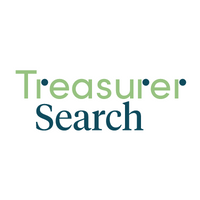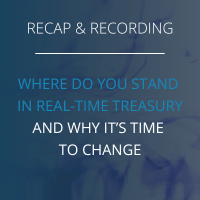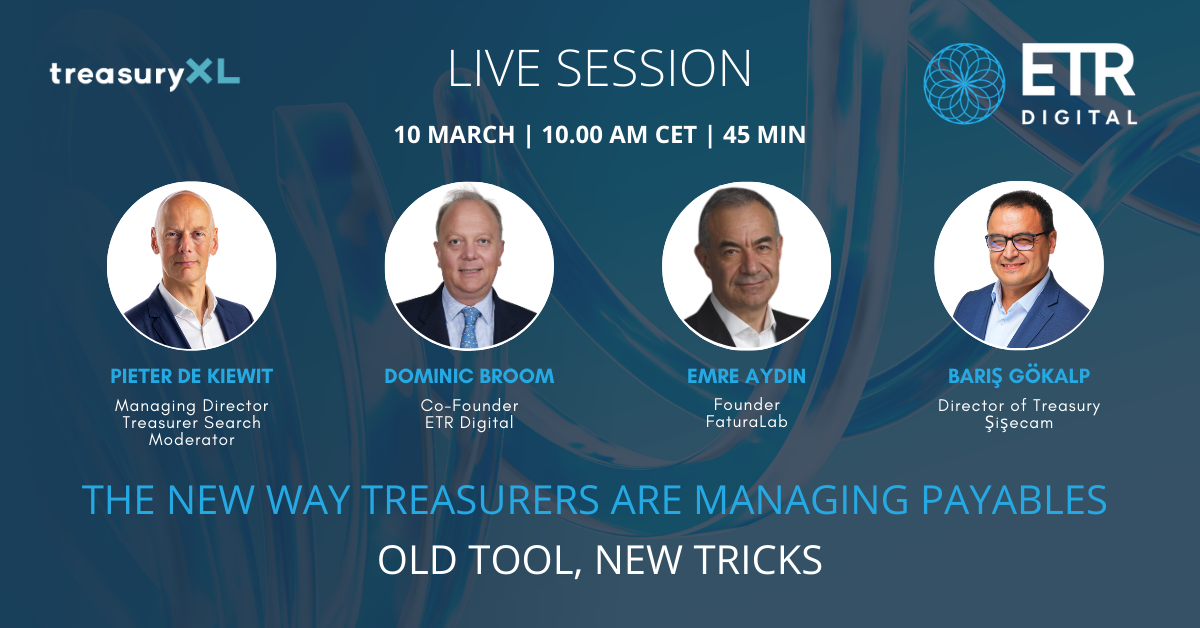TradFi institutions are increasingly realizing the importance of distributed ledger technology and blockchain’s opportunities. They are more and more prepared to use this innovative technology for solving existing shortcomings in various financial activities.
With the growing interest of financial institutions blockchain is increasingly seen as a transformative technology that would revolutionise the way financial transactions are conducted, creating new opportunities for the sector.
In this blog I will dive into the new developments that are contributing to this change in attitude, explore the transformative impact of blockchain technology in various facets of the financial services, as well as the way forward shaping the future of the financial industry.
Present challenges of the traditional financial industry
Traditional financial institutions are confronted with many challenges, such as cumbersome processes, extensive paperwork and susceptibility to fraud, that make them vulnerable and that is becoming more intense.
International trade finance for instance involves complex processes for exchanging goods and payments across borders, often requiring multiple intermediaries and extensive paperwork. But also traditional cross-border payments are plagued by inefficiencies, including high fees, long processing times, and multiple intermediaries.
Illiquid assets, such as real estate and private equity, pose challenges such as limited affordability to investors, inability to fractionalize, exclusivity, and regulatory issues. The financial services industry is also subject to a myriad of complex regulations, making regulatory compliance a significant challenge.
Blockchain technology is maturing
In the meantime blockchain technology is maturing. Novel solutions are emerging to address prevalent challenges of blockchain technology such as low scalability, lack of interoperability etc. As blockchain technology evolves, new developments and advancements, such as scalability solutions, privacy-enhancing techniques, and interoperability protocols, are shaping its future applications in fintech.
Layer 2 blockchain scaling solutions such as side chains or state channels are increasingly being adopted to enhance transaction speed and reduce fees, significantly improving user experience for decentralised apps (dApps). But also Layer 1 solutions such as sharding contribute to the more quickly execution of transactions. Interoperability solutions including cross chain bridges, side chains and notary networks, are also valued for their security as the key value proposition.
Sensible blockchain regulation takes effect
As blockchain adoption in the financial industry continues to grow, thereby reshaping the financial services landscape, regulatory bodies worldwide are enacting legislation to keep pace with technological advancements and changing business models.
Regulators are thereby striving to strike a balance between fostering innovation and ensuring consumer protection, market integrity, and financial stability, promising a safe and inclusive financial ecosystem. Regulatory frameworks governing fintech encompass areas such as data privacy, cybersecurity, anti-money laundering (AML), know-your-customer (KYC) requirements, and consumer rights.
Regulations are well advanced in the EU and the US. In the EU, the Markets in Crypto-Assets regulation (MICA) aims to create a comprehensive regulatory framework for crypto-assets and related services. In the US, the SEC has proposed rules for the custody of digital asset securities. At the same time, the US Office of the Comptroller of the Currency (OCC) has guided the use of blockchain technology in the banking industry.
Growing uptake by traditional financial institutions
Over the past 12 months, more types of financial activity are migrating to the blockchain as the underlying technology matures and sensible regulations take effect in major global jurisdictions. Traditional financial institutions are increasingly recognizing the potential of blockchain and distributed ledger technology. They are gearing up for a reboot of the financial system with the accelerated adoption of blockchain technology.
This growing embrace of blockchain technology is reflected in the strong interest among traditional financial firms. Many institutions intend to upgrade their infrastructure to incorporate blockchain technology. BlackRock, JP Morgan, Standard Chartered, HSBC, Goldman Sachs, BNP Paribas, Commerzbank and many more major financial institutions have all announced projects that deepen their involvement with blockchain.
Cooperation and integration TradFi and fintech startups
We also see a shift toward increased collaboration and even integrating of TradFi institutions and financial crypto startups in preparation for a financial system overhaul. While these startups are good at innovation at a fast space, they lack the distribution and scaling elements that TradFi do have. So a more collaborative approach would benefit both. Despite some of the inherent challenges in financial services in general and Fintech in particular, this collaboration and even integration is expected to become more prevalent in the coming years.
Blockchain may transform TradFi
Blockchain technology is becoming a groundbreaking force in traditional finance, revolutionizing the financial industry and offering a transformative shift in the financial world. Blockchain technologies are thereby transforming traditional finance through decentralised finance (DeFi) and the tokenization of real-world assets, evolving financial instruments like NFTs and ETFs, new applications including smart contracts, dApps, stable coins and ICO’s and the role of Decentralized Autonomous Organizations (DAOs) in changing funds, custody, and venture capital (VC) funding.
New applications
Smart Contracts
The most impactful application of blockchain in finance is its ability to efficiently establish trust through smart contracts. These contracts revolutionize the way contractual agreements are executed and enforced, opening new opportunities for sophisticated financial products that can be created and managed more efficiently.
Smart contracts are self-executing contracts with the terms of the agreement directly written into lines of code. These contracts are fulfilled instantly after all stipulations are met. They allow for the execution of complex financial operations secured “on-chain”, without the need for intermediaries.
By leveraging smart contracts, financial institutions can streamline various operations, such as loan agreements, insure claims and trade settlements, enabling the automatic execution of trades, automate processes like ownership transfer, dividends, and revenue distribution. As well as mitigating the risk of errors or disputes commonly associated with traditional contract execution methods.
Stable Coins
Another reformative application of blockchain technology are stable coins. These are crypto currencies that are often tied to real world assets like currencies such as the US dollar or commodities, making their value more ‘stable’ than the others.
Stablecoins are prized for their potential to increase liquidity, reduce costs, and increase stability. In addition stablecoins are offering a real-world, low-cost, near-instant global payments solution that almost entirely circumvents legacy infrastructure.
Stablecoins are becoming more acceptable in the financial sector. They represent an intriguing facet of Decentralized Finance (DeFi) protocols, poised to catalyse innovation across numerous industries in the coming years. The stablecoin issuers in the EU will greatly benefit from the recently passed comprehensive crypto regulation called MiCA or Markets in Crypto Assets Regulation. This year the American Institute of Certified Public Account (AICPA) issued a reporting framework for stablecoins, that will allow better transparency and protection to token issuers, holders, regulators, and the entire financial industry.
DAOs
And there are Decentralised Autonomous Organisations (DAOs) for finance. These offer a novel approach to managing financial projects and investments. In DAOs decisions are made collectively by stakeholders through blockchain-based voting mechanisms. DAOs can manage funds, execute investment strategies, and distribute profits directly to members, thereby challenging traditional organizational structures in finance. This model promotes a new form of corporate governance and investment management that is transparent, democratic, without centralized control.
ICO’s
Blockchain has also introduced another breakthrough investment idea in the form of Initial Coin Offerings (ICO). Instead of the traditional method of raising capital in an Initial Public Offering (IPO) on the stock market, ICOs offer digital tokens that represent ownership stakes in a company. More companies are turning to blockchain-based ICOs because they offer a faster, safer and more accurate way of collecting capital.
New financial instruments
Blockchain has also enabled the creation of new innovative financial instruments, such as DeFi platforms, peer to peer lending, asset tokenization, NFTs, ETFs etc that are reshaping the financial industry, by their broader adoption and integration with traditional financial institutions.
Decentralized Finance (DeFi)
DeFi signifies a transformative shift towards decentralized financial systems, by eliminating the need for middlemen or brokers in lending, trading, borrowing and asset management with the help of blockchain.
DeFi uses smart contracts to create protocols that replicate existing financial services in a decentralized architecture. DeFi platforms offer services ranging from banking, lending, and borrowing to asset trading and yield farming.
Major financial institutions are increasingly recognizing the potential of DeFi contribute to its transformation by integrating decentralized finance solutions into their operations. DeFi is expected to attract mainstream users in 2024 and beyond with the help of innovations like real world asset tokenization and the approval by the SEC of spot Bitcoin ETFs.
Tokenization of real world Assets
Another innovation that has attracted the interest of TradFi in the world of enterprise blockchain, is the tokenisation of real world assets, transforming the way assets are bought, sold, and traded.
Tokenization of assets in blockchain refers to representing traditional assets such as bonds and other debt instruments, as digital tokens on a blockchain such as tokenised securities and other asset-backed tokens. With blockchain-based tokenization, these assets can be divided into smaller, tradable units, making them accessible to a broader range of investors, that can be traded on secondary markets 24/7.
These tokens can represent fractional ownership of high-value assets, opening up new investment opportunities, diversifying portfolios beyond traditional banking, offering unprecedented liquidity and accessibility to a broader range of investors at much reduced costs.
Tokenization is poised to reshape traditional financial markets in the years to come, dramatically altering asset management and trading. Tokenized assets can be easily transferred and traded on blockchain-based platforms, reducing the need for intermediaries and simplifying the investment process.
Non-Fungible Tokens (NFTs)
Non-Fungible Tokens (NFTs) are finding applications in financial services, beyond the art and entertainment sectors, as unique digital representations of assets, rights, and memberships. Whether it is tokenizing real estate to facilitate fractional ownership or creating NFT-based memberships that offer exclusive benefits, NFTs are opening new avenues for investment, loyalty programs, and asset management.
Exchange traded funds (ETFs)
The U.S. Securities and Exchange Commission (SEC) approved 11 spot Bitcoin ETFs on 8 January this year, and speculations around a potential spot Ethereum ETF approval are growing. These exchange-traded funds (ETFs), make it easier for institutional investors to trade crypto in their portfolios. This reduces friction in the investment process and drives more capital into the space. The demand for these blockchain-powered financial services is expected to grow not only by private investors but also among traditional financial institutions.
Transformation of traditional financial use cases ….
The use of blockchain by traditional financial institutions could transform various traditional applications. Such as cross border payments, trade finance, asset management, lending and credit services as well as supply chain finance.
But also other key financial activities including identity verification management, compliance and security as well as data privacy could undergo important transformations.
Streamlining cross-border payments and money transfers
Cross-border payments innovation in blockchain in FinTech represents a significant step towards addressing the inefficiencies in traditional cross-border payment systems, facilitating seamless transactions across borders, by eliminating the need for intermediaries like correspondent banks or clearinghouses.
Blockchain technology is transforming the payments and money transfer industry by providing a decentralized protocol for facilitating cross-asset transfers of value globally. Decentralised blockchain-based payment systems could facilitate faster, more secure, more affordable and more cost effective cross-border transactions,.
By bypassing intermediaries, blockchain facilitates direct peer-to-peer transactions, resulting in reduced fees and faster settlement times allowing near instantaneous transfers.
Additionally, they provide transparency and immutability, enhancing security and mitigating fraud risks in payment processing, making cross-border transactions more accessible and reliable. As Blockchain adoption increases it will likely lead to a profound shift in the global payments landscape.
Simplified international trade finance
Blockchain can also play an important role in trade finance. Blockchain technology simplifies trade finance by providing a secure and transparent ledger for tracking transactions, documents, and ownership rights. Through smart contracts, payment and shipment terms are automatically executed, streamlining processes and providing real-time updates on transaction statuses.
By creating an immutable record of transactions, stakeholders can securely exchange trade documents, automate trade finance processes, and mitigate the risk of fraud and disputes in a transparent way, while enhancing trust among parties involved in trade finance, such as suppliers, buyers, and financial institutions.
This transparency and automation significantly reduce delays and administrative overhead, ultimately fostering a more fluid and reliable trade finance ecosystem. By facilitating faster and more efficient cross-border transactions, blockchain enhances liquidity and accessibility in international trade, benefiting businesses and economies worldwide.
Revolutionise Asset management
Blockchain offers new ways of accessing and managing financial assets, fostering innovation and expanding the range of options available, thereby reshaping investment behaviour.
Smart contracts further enhance asset management by automating tokenized securities’, compliance, dividend payments, governance processes and other administrative tasks, thereby streamlining operations and reducing friction in asset trading and ownership, resulting in reduced operational costs and risks. Increased liquidity, transparency, and accessibility make alternative investments more inclusive and accessible to a broader investor base.
As Blockchain technology continues to mature it could further reshape the asset management industry by driving greater transparency, efficiency and investor participation. In the coming years we will see a further transformation of traditional asset management.
Automated Lending and credit services
Another transformative impact could be seen in lending and credit services. Blockchain technology enables the creation of decentralized lending and borrowing platforms without the need for traditional financial intermediaries.
These platforms use smart contracts to automate the lending overhead costs and increase accessibility. They offer global access to credit services, promoting financial inclusion for underbanked populations. Furthermore, the transparency and immutability of blockchain records enhance trust and reduce risks of fraud or manipulation in crypto lending and credit services.
Supply chain finance: improved traceability and auditability Blockchain technology could also be an impactfull transformative power in supply chain finance. Supply chain finance in blockchain refers to the use of blockchain technology to optimize and streamline financial processes within the supply chain ecosystem, such as invoice financing and payments, thereby enhancing the functionality of traditional processes.
Businesses seek to optimize their supply chain finance operations and here blockchain solutions could bring improved efficiency. It enables real-time tracking of goods and financial flows. Using blockchain could leverage transparency, immutability, and efficiency to improve cash flow, reduce transaction costs, and mitigate risks for all participants involved in the supply chain, thereby driving market growth.
…. and of other financial activities
Next to these financial transactions blockchain technology may also transform other activities related to financial transactions including identity management and compliance, as well as security and data storage for auditing.
Enhanced identity management
Identity management is a critical aspect of the financial services industry. This may be enhanced by blockchain technology enabling more efficient customer onboarding and anti-money laundering recesses. By leveraging cryptographic techniques to protect sensitive information, blockchain offers a secure and decentralized and tamper-proof way for storing, verifying and managing personal information and digital identities, thereby streamlining Know Your Customer (KYC) processes and anti-money laundering (AML) efforts.
Blockchain technology also enables users to create and securely manage their digital identities on the blockchain thereby using private cryptographic keys, reducing the risk of identity theft and fraud. This give individuals control over their data, reducing reliance on centralized authorities.
Encrypted identity data stored on a distributed ledger bolster privacy, ensures heightened security, and eliminates the risk of centralized breaches or single-point failures. As a result they foster trust among participants in various financial transactions, paving the way for seamless and secure financial transactions.
Streamlined Compliance and security
Blockchain technology could also bring streamlined compliance and security thereby improving risk management. The blockchain’s transparent and immutable transaction records, leveraged by cryptographic techniques and consensus mechanisms enable comprehensive audit trails for regulatory oversight. This may alleviate regulatory burdens on financial institutions.
Blockchain analytics and compliance platforms help monitor blockchain transactions and provide tools to detect and prevent illicit activities. These compliance solutions ensure adherence to regulatory requirements and anti-money laundering (AML) guidelines. This makes it easier for regulators to monitor and audit financial activities.
Secure Data Storage for Auditing
Blockchain technology could also improve auditing processes. The immutable and transparent nature of blockchain is ideally suited for automating and enhancing the accuracy of financial auditing and compliance.
Blockchain’s immutable ledger provides a tamper-proof record of financial activities, ensuring transparency and accountability for auditing purposes. It offers real-time auditing capabilities, transforming traditional auditing processes into more efficient and less labour-intensive operations, thereby enhancing the integrity of financial reporting and compliance. This may result in streamlining auditing procedures and enhancing regulatory compliance efforts.
Transformative thinking
Blockchain is at the forefront of transformative change in the financial industry. We are just at the beginning of a transformative journey that promises to redefine the very foundations of the financial world, leading to a new era of efficiency, security and transparency in financial services.
This technology will continue to fundamentally reshape the entire financial industry revolutionizing traditional business models and practices, from cross-border transactions to growing and democratizing access to financial services.
This transformation of the TradFi industry is further enhanced by the upcoming of so-called hybrid models. The combination of blockchain with other emerging innovative technologies such as artificial intelligence (AI), Big Data, internet of things (IoT) and Web3.
Embracing the transformative potential of blockchain by traditional financial institutions is not merely advantageous but essential for staying ahead in the rapidly evolving landscape of fintech. Just like at the turn of the century when internet connectivity and mobile technologies ignited a wave of innovation in the financial sector market.












